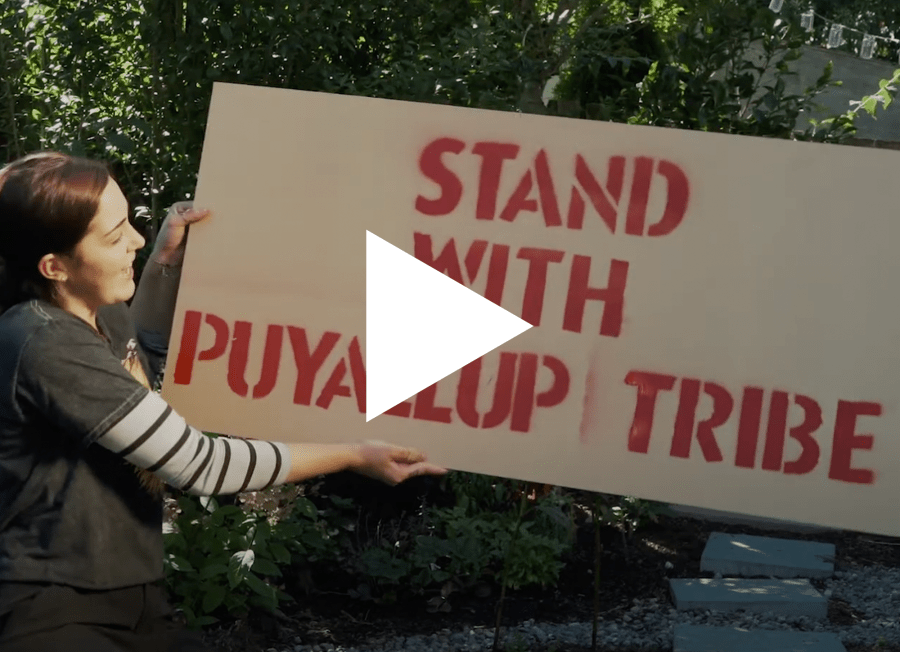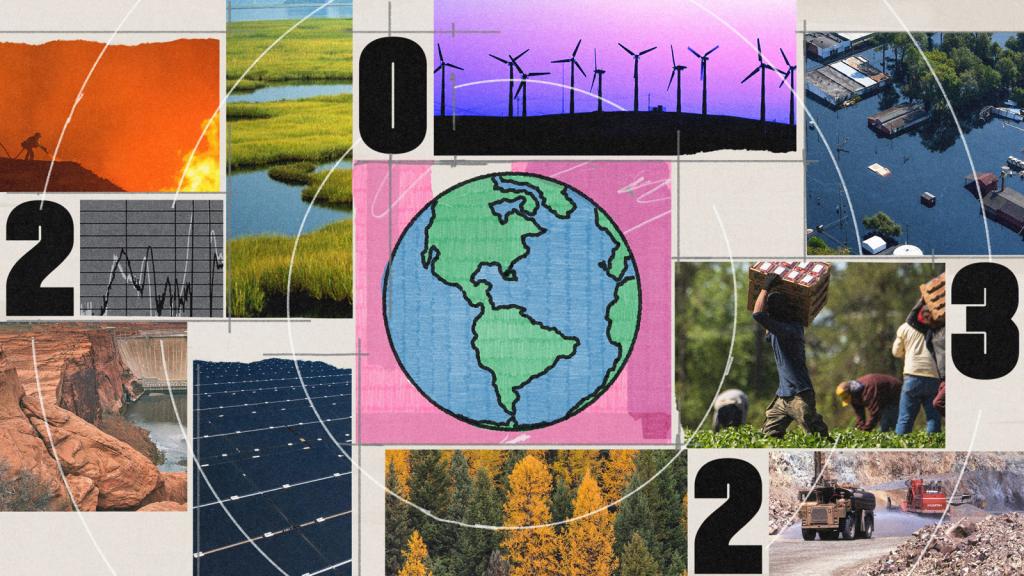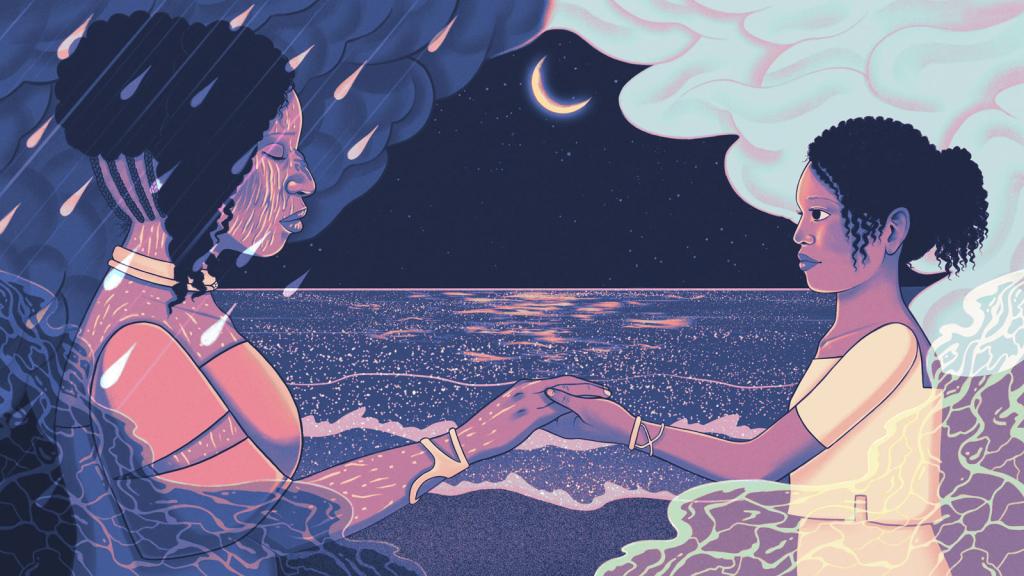Hey, everyone. We’re so excited to announce that we’ve picked a date for our first Looking Forward book club discussion: Wednesday, September 14, at 6 p.m. ET. We hope to see you there!! RSVP here — more deets (and a fun surprise) below.
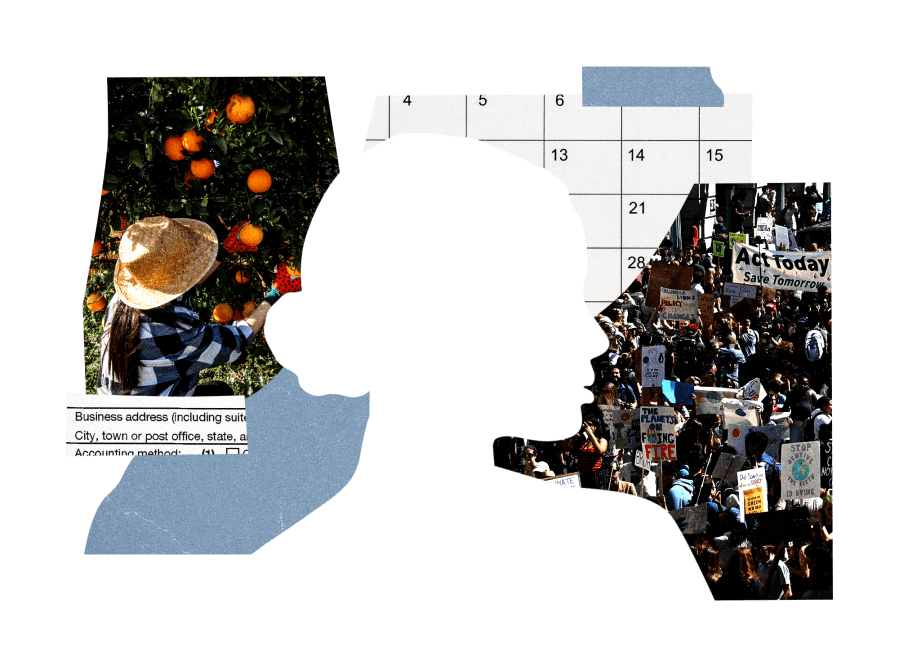
The vision
“I handle the financial audits. I’m chasing people down for receipts. I’m handling standardization of filing and making sure that our board signs off on things and updating the accounting policies and procedures manual — but all coming from a place of care and protection for our team, for our mission, for our organization.”
— Azuré Keahi, bookkeeper for Soul Fire Farm

The spotlight
Azuré Keahi was eight months pregnant with her second child when she applied for a job at Capital Bookkeeping Cooperative, a worker-owned company based in Troy, New York, that provides bookkeeping services to mission-driven organizations and local businesses. For someone who loved having her hands in the dirt, it was an unexpected move. She had been working at an artist residency, using permaculture design to manage landscapes and nourish local ecosystems. But in order to take care of her kids, she felt she needed to work from home.
“I’m going to try this thing,” she said to herself, “and see how I can apply my creativity and love for land to administrative processes.”
After four years as a bookkeeper, she’s come to realize that bookkeeping, too, can be environmental work. In doing accounting for clients like Soul Fire Farm — an Afro-Indigenous-centered community farm — she could free up that organization’s capacity to do what it set out to do: address racism in the food system and create a model for sustainable agriculture. Although her work doesn’t look like what most people imagine “climate advocacy” to be, Keahi quickly saw how tasks like paying people on time, keeping the org in compliance with the IRS, and maintaining a balanced budget were crucial to the group’s success.
Behind every social movement, there are countless people starring in supporting roles — balancing budgets, coordinating rides, bringing snacks, or sitting outside meetings watching kids. But while these bookkeepers, cooks, caretakers, and other folks are critical to the functioning of climate and justice work, most of us don’t hear about them. This Labor Day, we’re telling the stories of some of those who provide that crucial labor — frequently women, queer people, and people of color.
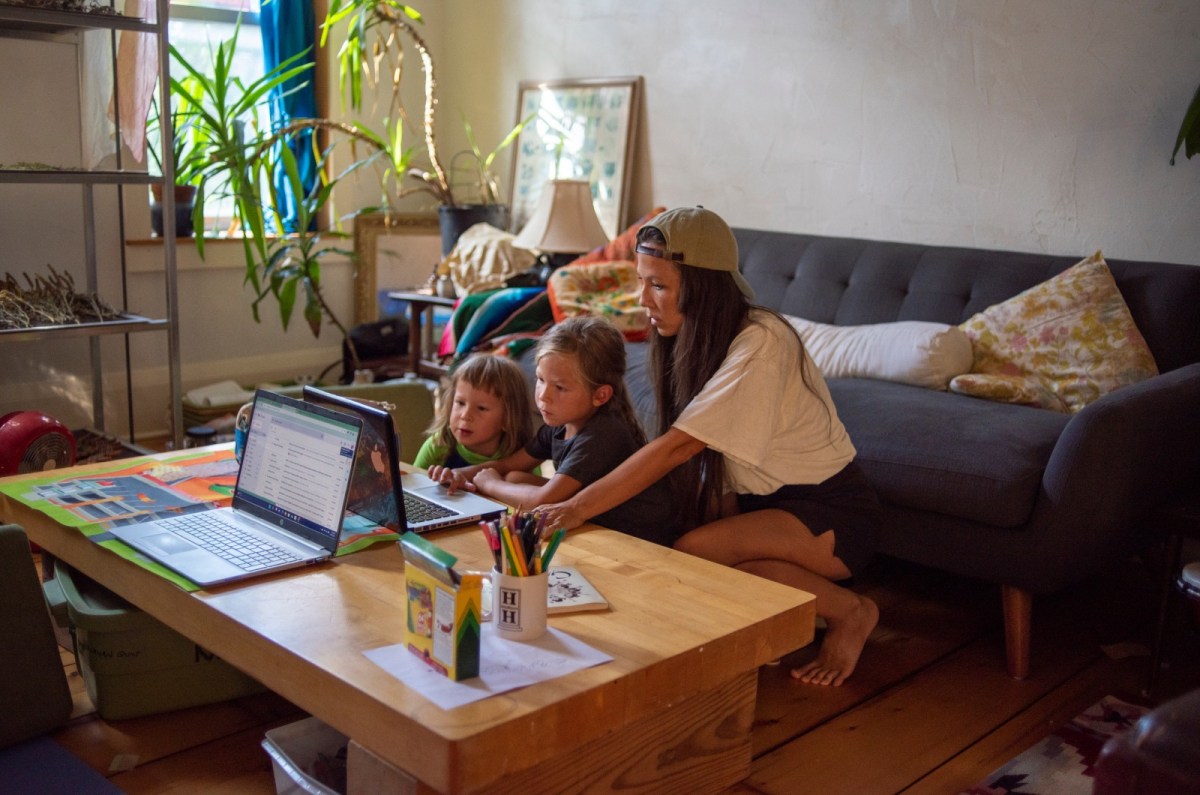
Azuré Keahi, bookkeeper for Soul Fire Farm, working alongside her kids at home. Sina Basila Hickey
Most of a social movement is grunt work, says FaRied Munarsyah of the People’s Kitchen, a Vermont-based volunteer organization that provides free food for activist events. The “glorious, sexy stuff,” like being on the front lines of big-turnout rallies, constitutes a small portion of the labor involved. And without that behind-the-scenes effort, a meeting, workshop, or demonstration is not going to be so magical. “There’s no meeting that can proceed without coffee,” he says with a laugh. “Somebody needs to do that stuff.”
People’s Kitchen volunteers pick up donations from local farms and grocery stores, prepare meals in commercial kitchens, and serve them at events like the workshops or statehouse demonstrations held by climate groups like 350 Vermont and Rising Tide.
To Munarsyah, this offering has a ripple effect — it sustains the people doing the activism and it also builds community. Whether folks are taking a break from a long day of workshops or sitting under a tree to eat during a protest, breaking bread together encourages conversation and cultivates relationships, which Munarsyah calls crucial to organizing work.
“I think food is really important to any event,” he says. “It’s a way for people to not just nourish themselves, but also to share with others.” And while the events might make the headlines, Munarsyah says the vast majority of the work it took to get there goes unnoticed: “Ninety percent of it is just meetings and figuring out the logistics of things and finding childcare.”
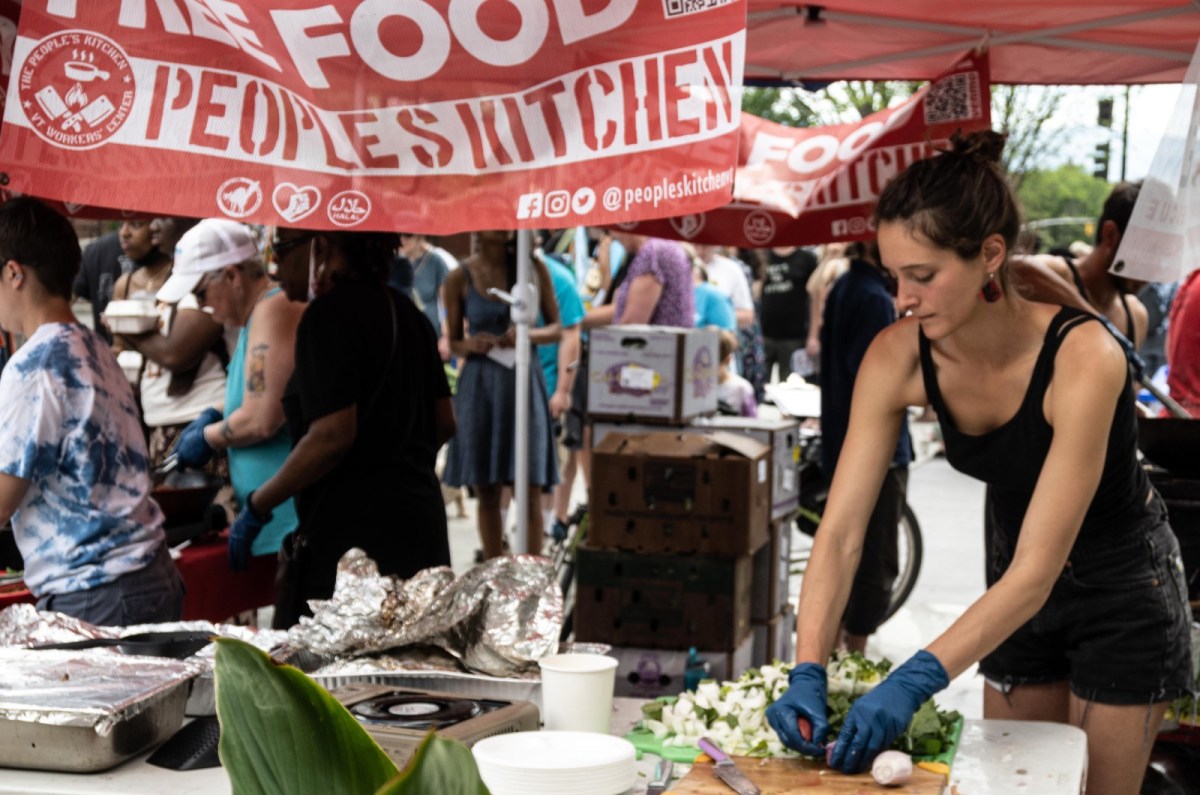
Volunteers prepare and serve food at a community event in Vermont. Courtesy of the People’s Kitchen
Finding childcare is made easier by organizations like the Greater Boston Childcare Collective (GBCC), which provides the service for free at community organizing and other activism-related events. “We do that so that parents and children can more fully participate in the movements,” says Shay McIntosh, a GBCC volunteer and member of the planning team.
In McIntosh’s experience, the burden of childcare often falls on mothers and grandmothers who may be prevented from participating in organizing work if they’re kept at home watching young ones. What GBCC does is help take on that “unrecognized labor and stress,” McIntosh says, so that caregivers can be leaders in the work. She feels this is particularly important for making spaces accessible to low-income people and people of color, who are disproportionately affected by climate impacts. One of the groups GBCC has volunteered for is Housing and Climate Justice for Acton, which supports apartment and condo residents in generating solutions to both the housing and climate emergencies. McIntosh sees GBCC’s work as a manifestation of both feminism and racial justice.
Keahi, who describes herself as quiet and shy, says her contributions sometimes feel overlooked in activist spaces. On a hard day, being the bookkeeper can feel like a thankless task. “I’m just doing all this work. Like, nobody notices,” she says.
But, she adds, she does it because bookkeeping takes advantage of her strengths, concretely supports environmental projects, and actually brings her joy. She thinks it’s possible for others to find that sweet spot as well. “I know everyone is good at something,” she says. “Everyone is able to offer their gift.”
— Marigo Farr
More exposure
- Read: a couple of Ask Umbra columns from the vault — this one offers a broad definition of green jobs, and this one teases out why all kinds of social-good work qualify as fighting the devastating impacts of climate change (Grist)
- Read: a Q&A on why care workers are essential to our climate future (The 19th)
- Watch: “The Big C,” a short animated video exploring how labor and climate intersect (The Center for Cultural Power)
- Brainstorm: Check out the Climate Venn Diagram, an exercise pioneered by marine biologist and climate policy expert (and Grist 50 Fixer) Ayana Elizabeth Johnson. The idea is to find the intersection of what you’re good at, what brings you joy, and what needs doing in the climate movement. Give it a go! And don’t be afraid to think outside the box.
On our horizon
The time is nigh … for our first Looking Forward book club! We’re getting together in two weeks, on Wednesday, September 14 at 6 p.m. ET (on Zoom), to discuss the climate anthology All We Can Save. You don’t need to have read the whole book to join in — though if you have, please let us know in the RSVP form which essays you’re most keen to discuss.
And we’re excited to share some huge news: We’re going to have a special guest appearance. Katharine K. Wilkinson, one of the co-editors of All We Can Save, will join us for the discussion!
Don’t miss out — RSVP for the gathering here.
A parting shot
What would a climate protest be without all those fire signs? That, too, takes time and labor. Check out this video tutorial from 350 Seattle showing how to make stencil signs.


